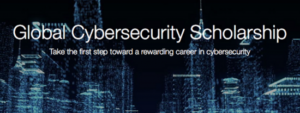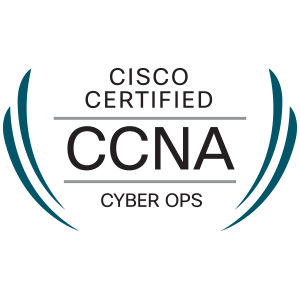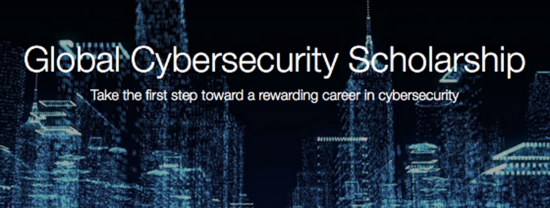CCNA CyberOps Scholarship Review
What is the CCNA Cyber Ops Scholarship?

In 2016, Cisco decided to invest 10 million dollars in a scholarship program with a goal to “..increase the pool of talent with critical cybersecurity proficiency”. Cisco also came up with the new CCNA Cyber Ops certification.
Through the scholarship program, Cisco will offer free training, mentoring, and testing designed to help you earn CCNA Cyber Ops certification and hone the skills needed for the job role of security operations center analyst. The new CCNA Cyber Ops certification has been designed to address the critical skills deficit, providing the job-ready knowledge needed to meet current and future challenges in network security (From the cisco site)
I applied and got into this program. The requirements were basic, all one needed was some IT experience, interest in learning about IT security and some certifications to prove one’s interest and ability to learn. I have CCNA R&S, and CCNA Security (Now working on CCNPs for both) I met all the requirements. They also had a proficiency test which I passed.
The Scholarship Experience
I was slated to be in cohort 5. There are 7 cohorts that are span over two years (2017 and 2018). Two weeks before my cohort started (start day was December 28th 2017) I got an email from Global Knowledge with my log in information and a go ahead to start ahead of scheduled day if needed. I had no issues logging in and diving into the material.
There were two courses SECFND and SECOPS which correspond to CCNA Cyber Ops exams (210-250 SECFND and 210-255 SECOPS). SECOPS was more hands-on while SECFND was infested with foundational theoretical knowledge.
The course material consisted of videos and some text. They had a challenge at the end of every chapter (per Global Knowledge format) and It was required that one take this challenge and get at least a silver medal (like 80% or better) in order to get the exam vouchers. I did well in all of them and got my vouchers about 4 weeks into each course.
Did I learn anything?
Yes.
I have always had interest in Cybersecurity and have participated in CTF and Cyberange challenges so I knew some of the methodologies and terminologies used in the course. Here are some of the things I took from the course
- Principals of what it takes to be a SOC analyst. I got a lot of foundational knowledge that I did not know, including how a SOC works and how to be an analyst
- The different roles in a CIRT and how a SOC functions within an organization
- How to form a SOC
- How a SOC analyst needs to understand both the infrastructure and the organizational goals in order to be effective.
- Compliance and regulation (PCI, HIPPA)
- Log analysis (IDS, IPS, etc)
- Packet analysis ( Snort, Bro, Security Onion, Wireshark)
- Reporting incidents and procedures to follow.
- And more
There is more I learned so this is not the whole list. At $300 per exam plus the cost of training (I recommend Global Knowledge -May cost over $2k) I still recommend this course to anyone who is serious about learning the principles and practical expertise to be an effective Incidence response analyst (SOC Analyst).
What did I not like
Labs worked most of the time. I wish there were more, especially in SECFND.
Final thoughts
If you are passionate about cybersecurity or would like to get your feet wet and get some hands on experience in a fun environment, take the course. I enjoyed all the labs and I am actually in the process of setting up Security Onion in my lab environment, so I can keep analyzing logs and sharpen my skills. I passed both exams and i am now certified. I am going for the CCNP Security after R&S and ultimate OSCP & OSCE.

I am redoing my lab so I can collect incidents to my SIEM (Solarwinds, free for VExperts) so stay tuned for my updated network diagram.
